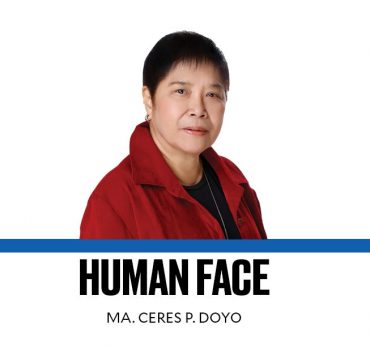Political survival, not compassion

What were they thinking?
Barely two weeks after massive protest rallies expressed nationwide outrage over substandard or nonexistent flood control projects that showed the possible involvement of several senators in the anomalous deals, 15 senators signed a resolution urging the International Criminal Court (ICC) to put former President Rodrigo Duterte under house arrest “for humanitarian reasons.”
Duterte, 80, is under ICC custody in The Hague and is facing trial for crimes against humanity for the thousands of extrajudicial killings during his brutal war on drugs. Based on official data, more than 6,200 suspects were killed during police drug raids, although critics and rights groups put the figure closer to 30,000.
Citing Duterte’s advanced age and deteriorating health, the resolution introduced by Majority Leader Juan Miguel Zubiri and Minority Leader Alan Peter Cayetano also asked the ICC to assign the detainee a doctor to determine his fitness to stand trial. The other senators who voted for the resolution were Imee Marcos, Robinhood Padilla, Rodante Marcoleta, Ronald “Bato” dela Rosa, Jinggoy Estrada, Christopher “Bong” Go, Joel Villanueva, Sherwin “Win” Gatchalian, Loren Legarda, Erwin Tulfo, Joseph “JV” Ejercito, Panfilo “Ping” Lacson, and Mark Villar.
Senators Risa Hontiveros, Paolo Benigno “Bam” Aquino, and Francis “Kiko” Pangilinan voted against the resolution, while Senate President Vicente “Tito” Sotto and Sen. Raffy Tulfo abstained.
Tone-deaf response
Could the resolution be a well-timed distraction from the Senate blue ribbon committee probe that threatened to incriminate more senators until it was suspended last week? At the very least, the resolution is a tone-deaf response to the people’s demand for transparency and accountability in the corrupted government projects that had sunk lives and livelihood among vulnerable sectors.
The resolution is a slap in the face of the victims’ families, who are forced to seek justice outside of their own country precisely because of the indifference of government officials. As Hontiveros pointed out, the resolution is further proof of how our laws are harsh against ordinary citizens, but lenient and forgiving toward the powerful. Asked the Philippine Alliance of Human Rights Advocates: Why “prioritize Duterte’s comfort while ignoring clear injustices against political prisoners?”
Rights groups noted the hypocrisy of the Senate that turned a blind eye to the search for justice among Duterte’s victims. “The Senate has undertaken no concrete measures to assist the families of victims … No action. No accountability. No compassion,” pointed out the group Initiatives for Dialogue and Empowerment through Alternative Legal Services.
Political intrusion
Several rights groups said the Senate resolution only aims to “shield power” while “spit[ting] on the memory of the thousands of Filipinos slaughtered in Duterte’s so-called war on drugs … Instead of accountability, the Senate has chosen denial,” it added.
For all its compassionate posturing, the resolution is a futile attempt because the ICC now has jurisdiction over Duterte, and is “insulated” from the “special arrangements” that the Senate is requesting for him. ICC assistant to counsel Kristina Conti also noted that the resolution is “patently self-serving,” and could even be “counterproductive,” in that the ICC Pre-Trial Chamber I “will only consider matters of fact and law.” In fact, she added, “this move could backfire if the court sees this as political intrusion and a form of undermining its independence.”
At the same time, “the ICC may also see this as conclusive proof that the Dutertes still exercise significant political clout nationwide [especially] in Davao, which is why he cannot simply go home there,” Conti said, echoing fears that the former president and his allies still wield considerable influence and could threaten victims and complainants.
Personal ambition
Proof of such influence is the recent Golden Pillar of Law award given to Duterte by the Integrated Bar of the Philippines no less. While the award is given to lawyers who have reached 50 years of legal service, the IBP grossly overlooked how the former president had flouted due process in his extrajudicial killings and weaponized the law to silence his critics. How can the IBP ignore how this awardee had trampled the very institution it represents?
The Duterte factor figures strongly as well in the Senate resolution that reflects the partisan politics behind it. With President Marcos midway into his term, the senator-signatories seem to want to curry favors with Vice President Sara Duterte, seen as a leading contender in the 2028 presidential race. Instead of showcasing compassion, the resolution is clearly a naked bid for political survival.
Putting their personal ambition above public interest should consign these senators to house arrest themselves on “humanitarian grounds.” That is, to give Filipinos a chance to rebuild the democratic processes and justice system their lawmakers incessantly tried to demolish.





















New philanthropy playbook for Asia